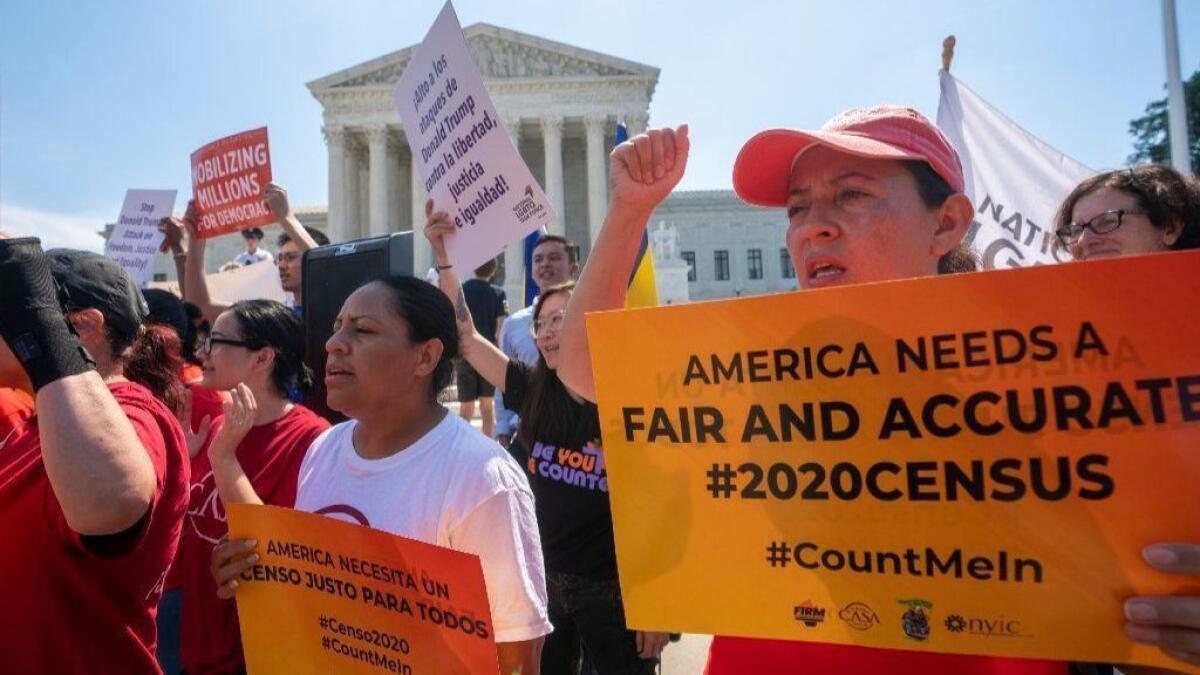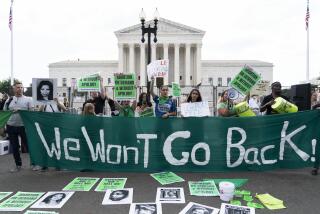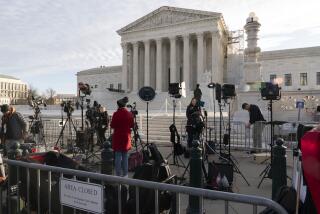Readers React: The media-fueled myth of a partisan Supreme Court

To the editor: Your editorial conclusion that the current justices of the U.S. Supreme Court “don’t always vote as a partisan bloc” and that they “aren’t politicians in robes” is reassuringly correct.
The problem is the tendency of pundits, journalists and others continually to cast the court as purely a political entity divided into two camps. Not so.
In fact, most Supreme Court decisions on a variety of subjects come close to unanimous or near-unanimous decisions. Even in cases that appear as highly politicized, as you point out, liberal or conservative labeling does not often apply.
Qualified judges who know their role will do their best to be neutral and to analyze the facts and the law to reach a conclusion that is often more nuanced than just “liberal” or “conservative.” To the extent the American media, opinion makers, members of the public and the president don’t grasp this reality, the rule of law, the core of our democratic republic, is at stake.
Thanks for showing the way with your editorial.
Michael H. Miller, Los Angeles
The writer is a retired attorney.
..
To the editor: While Chief Justice John G. Roberts Jr. would like to avoid the appearance of a partisan court, he surely knew that delivering two major victories for conservatives in one term would allow his court to be labeled as partisan, so he voted in effect to postpone a final decision on the U.S. Census citizenship question.
The court’s opinion, however, did not mean that the justices would eventually rule against allowing the citizenship question to be asked.
The Supreme Court struck a major blow against democracy by ruling that the federal government had no jurisdiction over partisan gerrymandering. It has been tarnished by the appointments of Justice Clarence Thomas in 1991, Justice Neil M. Gorsuch in 2017 and Justice Brett M. Kavanaugh last year.
One can expect future right-wing decisions.
Richard C. Armendariz, Huntington Beach
The writer is a retired administrative law judge.
..
To the editor: In this editorial, the L.A. Times Editorial Board’s disdain for freedom of religious expression is palpable.
You advocate the elimination of prominently displayed religious symbols on public property, but forget that Thomas Jefferson attended religious services in the U.S. House. In the Oregon baker case, you clearly favor all LGBT concerns over religious moral objections.
If we are slouching toward the position that any imaginable priority trumps the rights of believers, what will remain of any of our basic freedoms?
Larry Walker, Canoga Park
Follow the Opinion section on Twitter @latimesopinion and Facebook
More to Read
A cure for the common opinion
Get thought-provoking perspectives with our weekly newsletter.
You may occasionally receive promotional content from the Los Angeles Times.






